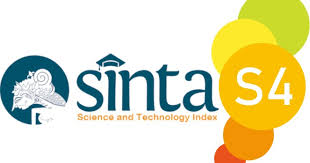English Teachers Classroom Techniques used In Teaching Speaking At SMAN 2 Koto Baru
English Teachers Classroom Techniques used In Teaching Speaking At SMAN 2 Koto Baru
Abstract
One of the teaching techniques that every teacher should have is the technique of controlling the classroom. This study aims to understand how teachers apply classroom control techniques in English language teaching. This type of research is qualitative research. Participants in this study were four English teachers at SMA Negeri 2 Koto Baru. Research tools are questionnaires and observations. The result of this study was that four teachers applied each classroom control technique well in oral language learning, including setting boundaries, initiation, criticism, and appreciation. The percentage of its use includes; 93.1% of teachers one, 87.5% of teachers two, 78.7% of teachers three, and 72.4% of teachers four.
Downloads
References
Fitri, Nidya and Hartini. 2020. Meningkatkan Kemampuan Berbicara Bahasa Inggris melalui Strategi Bermain Aktif pada Anak TK B Aisyiah Bustanul Athfal 1 Denpasar Tahun 2016, Jurnak Pendidikan dan Sosial Islam, 2 (1), 37-46.
Gay, L.R and Peter, Airasian. 2000. Educational Research Competence for Analysis and Application. New Jersey: Prentice-Hall Company.
Marzono, Robert J. 2003. What Works in School. America: ASCD.
Moore, Kenneth D. 2001. Classroom Management Skill. New York: McGraw-Hill Company, Inc.
Nunan, David. 1998. Language Teaching Methodology: A Textbook for Teachers. Sydney: Macquairie University.
Nunan, David. 2003. Practical English Language Teaching. New York: The McGraw-Hill Companies, Inc.
Pigford, Thedrick. “Improving Teacher-Student Relationships: What’s Up with That?” Clearing House; A Journal of Educational Strategies. v74, n6, July –Aug 2001
Reynolds, Cecil R and Elaine Fletcher-Janzen. 2007. Encyclopedia of Special Education. Canada: John Wiley & Sons, Inc.
Richard, Jack C and Willy A. Renandya. 2002. Methodology in Language Teaching: An Anthology of Current Practice. New York: Cambridge University Press.
Copyright (c) 2023 Nidya Fitri

This work is licensed under a Creative Commons Attribution 4.0 International License.













